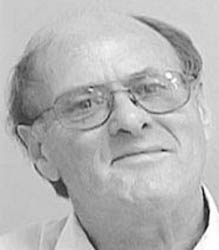One of the most thrilling things about being an expat is mixing with foreigners in one’s everyday life – people whose customs and cultures and national histories are different from our own. My small island (50,000 people, 80 square miles) is home to at least 50 nationalities – or 60, or 70, or more; the number changes all the time. Altogether, expats outnumber natives by two to one.
Until fifty years ago the word “expat” barely existed here. There were virtually no transient workers. Strangers who came by, for one reason or another, usually stayed. Men (it was mostly men) married native-borns, or didn’t marry them, and became part of the native community. For 300 years after the first settlements, by drifters and vagabonds in the 17th Century when there was no Law closer than Jamaica, Caymanian fishermen from time to time set up second-homes (and sometimes second-families…) elsewhere in the region. Gulf Coast towns in the US, Cuba’s lesser islands, Jamaica, and the Caribbean coast of Central America – all of those places have citizens who can trace ancestors to Cayman.In 1973, the British Government promulgated a new law defining “Caymanian” for the first time. It meant someone who was either domiciled here or descended from someone who had once been domiciled here (and could prove it!). By default, everybody else was an expatriate – and still is. There are expat spouses of bloodline Caymanians, and expat mothers or fathers of bloodline Caymanians, and there are even expat citizens. Some expats were and are absorbed into the Caymanian community and culture. Newcomers with a bloodline descent from a Caymanian as per the 1973 definition are the only “real” Caymanians, according to themselves. A great many real Caymanians are scornful of “paper” Caymanians, and there are tensions between the former and all the expat communities.
It didn’t take me long, when we first came here in 1978, to understand that the Caribbean attitude to skin-colour was one of precision. Caribbeans in general reject the US principle that one drop of African blood makes a person “black”. The term “Black American” is little indication of skin-colour. Most Caymanians are somewhere between white and black, and colour prejudice of any kind is extremely rare. (It’s been said that Caymanians are too busy resenting expats to have time for intra-community squabbles over colour. There’s a lot of truth in that comment.) I once asked a young Caymanian in my office how she would describe her colour. “Dark chocolate”, she said promptly, “I don’t think I have any white blood, but my grandmother was a Carib from St Vincent, and they were a brown-skinned people.” She didn’t consider herself black as per a paint-shop’s colour-chart – and nor was she, in fact.
Overall, Caribbean natives are generally far, far, more relaxed about colour than most outsiders are. We expats benefit greatly from that attitude. In one way, though it adds to the societal strains that exist between us and native Caymanians. White immigrants find common cause with black immigrants to a degree I’ve not found anywhere else.
A Canadian friend and I have breakfast every Saturday at one of the hotels looking out on the main beach. The waiters are mostly expats, from (last week) Jamaica, India, Nepal and Philippines. Thursday evenings my wife and I buy takeaway pasta-plates (we choose our own ingredients) at an outdoors restaurant down the road from where we live. The three cooks in white aprons and chefs’ hats are an Austrian, a Jamaican and a Pakistani. Our housemaid (four hours a week from an agency, on slave wages) is from the English-speaking island of San Andres, owned by Colombia. Our plumber is from Honduras’s Bay Islands. Our termite-inspector is Irish. Our Tennis Club’s coaches are South African and the manager American. Our public hospital has doctors from India, Jamaica and assorted European nations. Our Red Cross branch is managed by an East African.
In 1985 a local theatre group put on “The Sound of Music”. Now, if ever a play called for an all-white cast, it was one set in 1930s Austria during Nazi rule. But this was Cayman, and no discrimination could even be considered. If the audience could suspend its disbelief that Peter the High-School teacher was an Austrian aristocrat, it could go the extra mile and imagine half his children had been adopted from wherever Madonna finds her babies. My son’s two closest sisters were Jamaicans, as black as he was white. Maria (Julie Andrews) was a Caymanian with a Mayan grandmother in Nicaragua; the oldest daughter was a Kapoor from India, whose mother knew to put glycerine in her eyes to make them sparkle. The show was a raving success. Nobody questioned the casting, even privately.
Fifteen years later, in a three-character play written by a Caymanian and directed by a chap from Trinidad, my son played the part of a Caymanian boy. He was excellent, strong Caymanian accent and all. Afterwards, in an informal discussion of the theme, a woman from the audience complained that his part should have been played by a true-born Caymanian, for authenticity. Protectionist sentiment is diligently fostered by the local politicians, and is a major cause of the expat-native tension I mentioned above. Anybody thinking of coming to Cayman to live, needs to be prepared to cope with it.
Gordon Barlow has lived in Cayman since 1978. He was the first full-time Manager of the Cayman Islands Chamber of Commerce (1986-1988) – a turbulent period when the Chamber struggled to establish its political independence. He has publicly commented on social and political issues since 1990, and has represented the Chamber at several overseas conferences, and the Cayman Islands Human Rights Committee at an international symposium in Gibraltar in 2004. His blog www.barlowscayman.blogspot.com contains much information on life in Cayman, written from the point of view of a resident and citizen.

